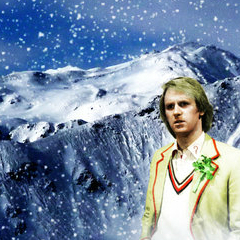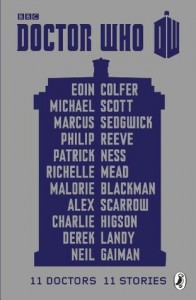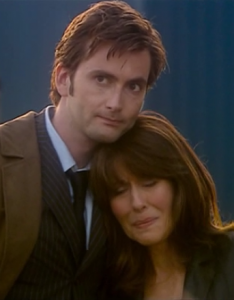 I recently played the first session of the Ice adventure from the Eighth Doctor Sourcebook.
I recently played the first session of the Ice adventure from the Eighth Doctor Sourcebook.
I’m not running this as a campaign, per the intentions of the supplement, but as a standalone. I felt that the adventure would work quite nicely that way.
I also used the Fifth Doctor and Nyssa as the characters at the centre of the adventure. The adventure slots into the continuity between Time-Flight and Arc of Infinity in the series (between Season 19 and 20), where several New Adventure novels and Big Finish audio dramas probably all dwell.
As it happens, this choice came down to the players. One loved the Nyssa character and wanted to play her, so it seemed to be just right. Ice involves rooting around in caves beneath a frozen planet and somehow that seemed perfectly Fifth Doctor as well.
All this isn’t really the point of this post. What I wanted to mention was the fact that I punctuated the session with music.
At the start of the adventure the TARDIS arrivals unexpectedly on a cold planet. Unexpectedly arrivals are not unusual in Who. In this case, the cold is the unusual part. The TARDIS feels cold. So, the Doctor’s curiosity gets the better of him, as how could a planet penetrate the TARDIS like that?
After finding suitable clothes in the Wardrobe, the two character ventured out and I described the desolate, glacial scenery. And the cold. They trudged a bit and casting around they realised that something lay beneath the ice, some relic of an alien city.
At that point, a snowmobile appeared in the distance. Nyssa hid while The Doctor bid a cheery hello to the newcomer. While conversation ensued, Nyssa became aware of an odd vibration in the ice. Or was it more of a tremor?
A moment later, mid-conversation, the guy on the snowmobile wheeled it around as the ice creaked, shuddered and then cracked. Sheets of grey-blue ice jabbed skyward while others dropped into the abyss. Both characters made a leap for safety, The Doctor fell, only for his fingers to catch an edge.
As The Doctor struggled to get up, aided by the stranger, Nyssa looked across the ice field. Jagged streaks patterned the surface, now covered with pits and holes. In the distance the TARDIS…
And then it dropped out of sight.
Queue the stab of the Who theme. POW.
If they hadn’t got in the mood up to that point, the theme made all the difference. We’re all suddenly bobbing about and squeal wee-woo.
It set the mood and also served as a way to cut to the next scene, as the snowmobile ground into the waiting camp beyond the mountains. No need to worry about the journey between or the uneasy silence from the stranger. The Doctor and Nyssa could worry about the TARDIS later – they had new people to meet and a mysterious city to uncover.
The theme worked really well. I can’t say that music works for everyone, and as a background noise it will be Marmite for some groups. But in that moment, the stab of the Theme worked wonderfully well, just as the outro version of the theme worked well at the end of the session, just as I revealed the cliffhanger revelation.
I recommend giving it a try, whatever the game. If you can find a theme tune, go for it. I can see it providing a valuable and rather entertaining framing motif. If you follow the TV serial approach to games, it doesn’t always have to happen at the same time. Some shows you can go five, ten, even fifteen minutes before they kick in the theme tune and the opening credits. In a longer drama or serial, they have a degree of leeway – as do you in running a gaming session.
Find a tune. Set the tone of the session. Hit the danger or reveal the cliffhanger from last session – and then play the theme.
—
Original art (cropped for this post) by deviantart contributor hisi79





